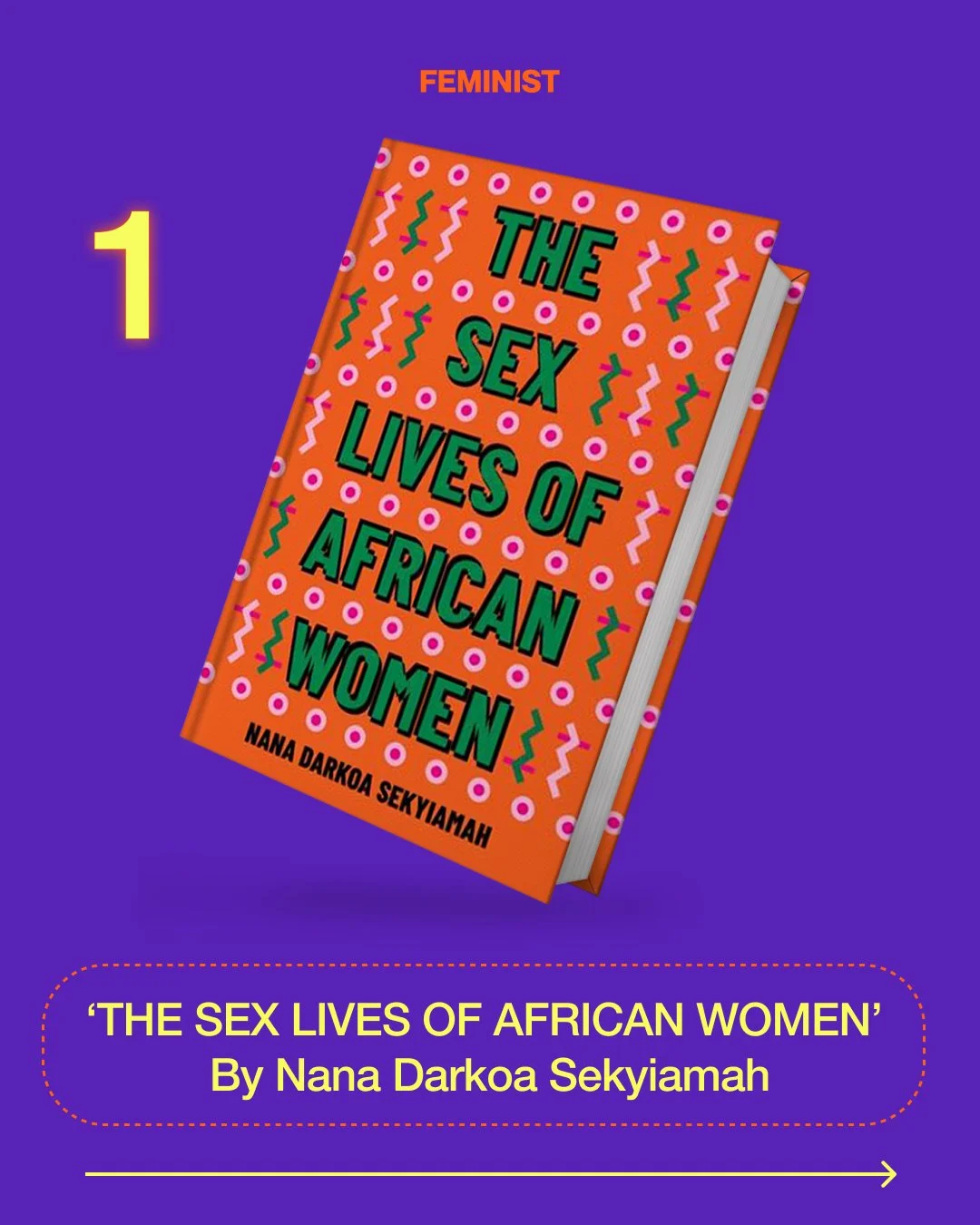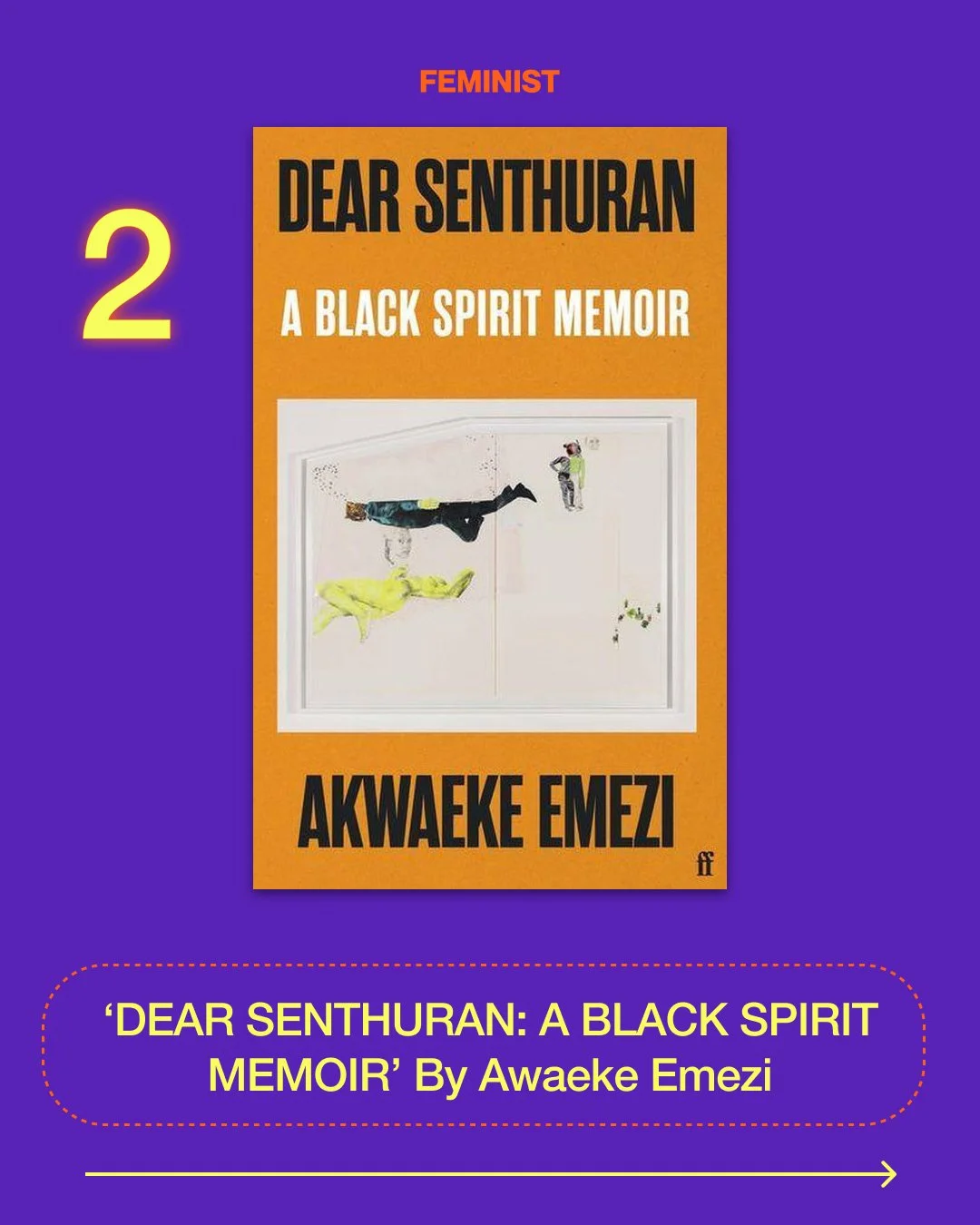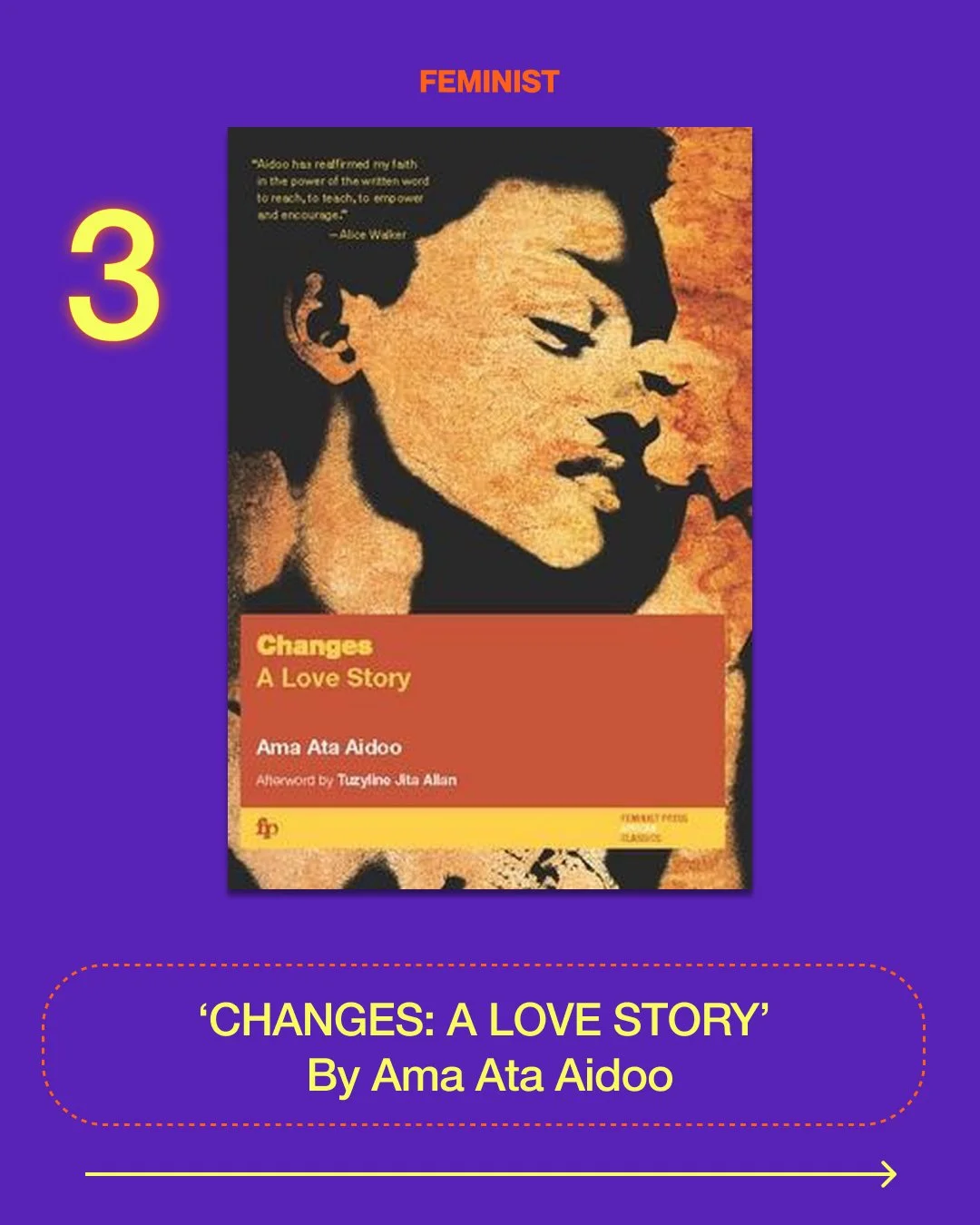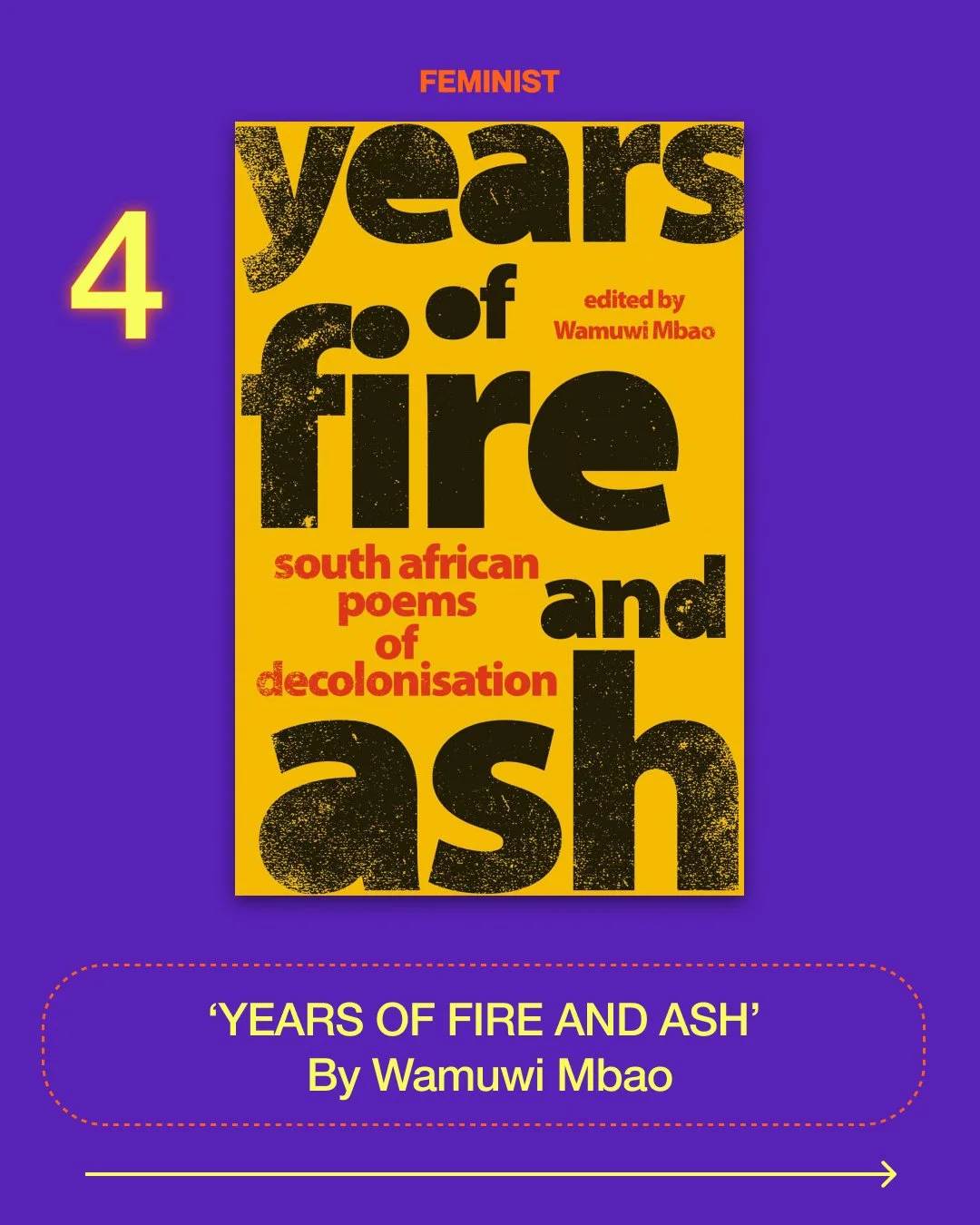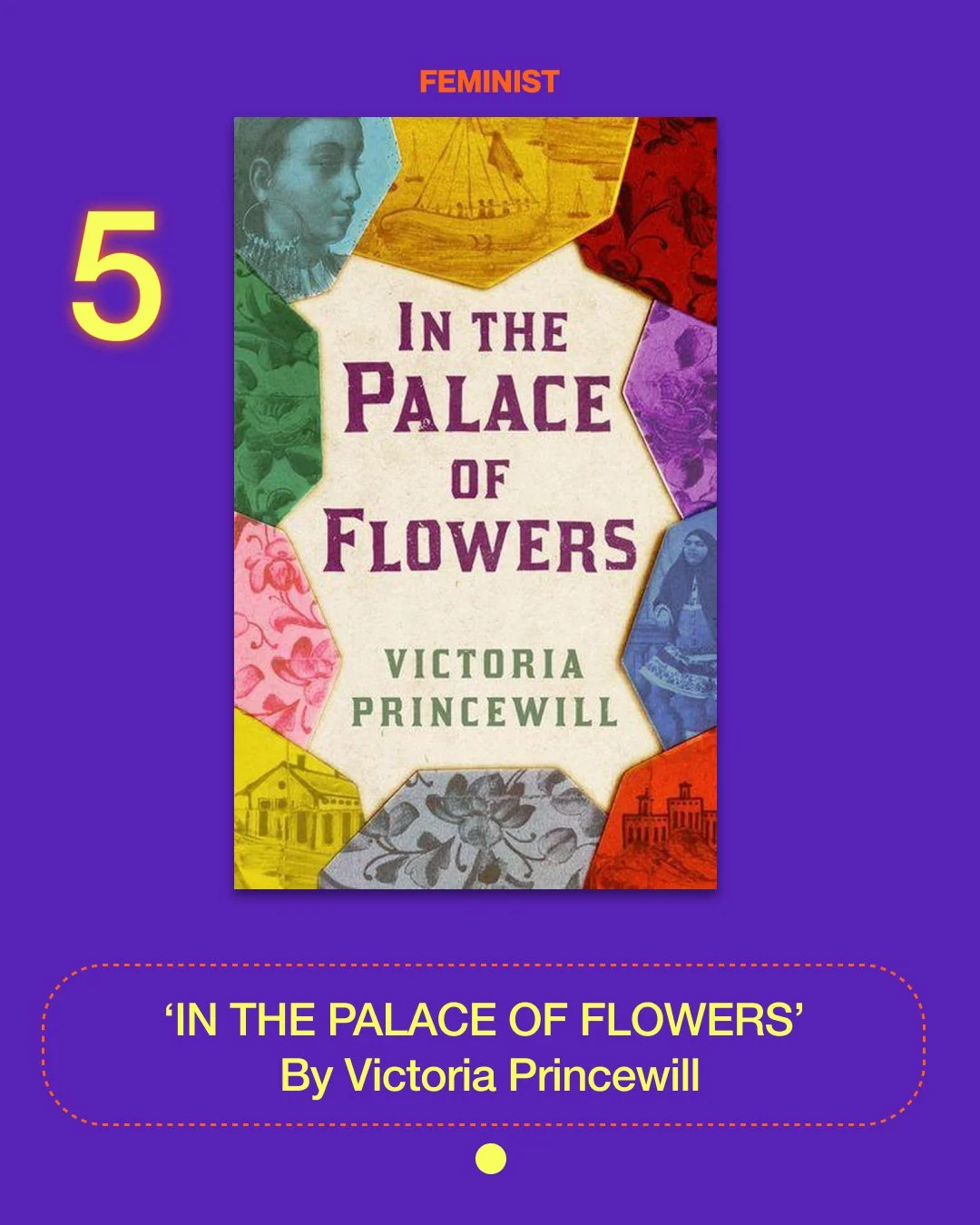5 African Feminist Books curated by aincre evans
Contributing editor Ethel Tawe invites guest curator Aincre Maame Fosua Evans to curate some of her favourite 2021 feminist books from the continent. Aincre Maame Fosua Evans is a Senior Researcher and feminist writer at the Institute of African Studies at the University of Ghana. Their research centres on African feminist history, colonial self-fashioning and creative theorization. Aincre’s work addresses the challenges of resurfacing intimate, agentic, and sometimes uncomfortable gendered narratives that sit on the periphery of African history.
“The feminist struggle on the African continent is particular with respect to the larger histories it draws on as well as the intersectional framework it deploys to contribute to transformative realities for African women and people. African feminist theories not only seek to deconstruct worldviews and systems of power that reproduce heteronormative, white, and patriarchal configurations of meaning but also aim to construct alternative systems. This selection of books highlight different aspects that are tangentiall to African feminist thought, ranging from women’s agency over their bodies and pleasure, to indigenous epistemologies of being, historical recrafting, and decolonial thought and struggle. Although five of these books are from 2021, Ama Ata Aidoo’s 1991 novel is there as a reminder that feminist trajectories and discourses are not linear. When we read, engage, and theorize from literary work, we must also remember to reach back and place these new ideas in dialogue with past and prior articulations of feminist experience.” — Aincre Evans
This book draws from over thirty personal stories of African women on the continent and the diaspora, collected by Sekyiamah over the course of six years. Through honest and sometimes heart-wrenching accounts, the reader is invited into the various ways in which African women have explored and negotiated their sexual identities.‘The Sex Lives of African Women’ provides readers with an understanding of how sex can be liberating and agentic, but also significant to and part and parcel of unequal economies of power.
In their book, Emezi invites the reader into the framework of Igbo ontology. The chapters of the book are structured into a series of intimate letters, each surfacing meaningful moments in the author’s life but also important rifts in Emezi’s relationships, identity, and navigation of this earth as an Ogbajne, a Nigerian spirit. In these personal and carefully crafted pages, Emezi highlights the constraints offered not only by binary understandings of gender, but by Western understandings of self, body, and soul.
‘Changes’, first published in 1991, remains a African feminist classic novel. The book is set in Ghana during the 1980s and offers a social commentary of the gendered and cultural tensions emerging in the context of Ghana’s changing and ‘modernizing’ society. Aidoo introduces these conflicts and themes through the character of Esi and her navigation of her romantic relationships, using love as an entry point into discussing the particular struggles and sacrifices ‘modern’ African women are confronted with.
This book is a collection of South African poems collected around the theme and struggle for Decolonization. The poetry collection, gathered by Dr. Wamuwi Mbao, features some of the most prominent decolonial poems that reach back from Apartheid to present day South Africa. Compiling these words in a single volume, Mbao gives readers the opportunity to see how different poets, working within different socio-political contexts and climates, position and approach the need for radical social transformation.
This is a work of historical fiction that was inspired by the first person account of Jamila Habashi, an enslaved Abyssinian in 19th Century Iran. The letter, written by Jamila in 1905 is included in the book, and is the only recorded first-person account of an enslaved African in Iran. Using this account as foundation, Victoria Princewill invites her readers to a fascinating journey that opens up a less documented and accessible history. Through the characters of Jamilia a concubine and Abimelech, an enoch, who are enslaved persons in the Royal Court of the Qajar dynasty, Princewill weaves a beautiful plot of politics, love, resistance, and history into being.



